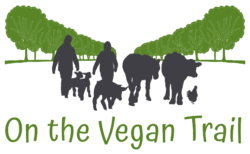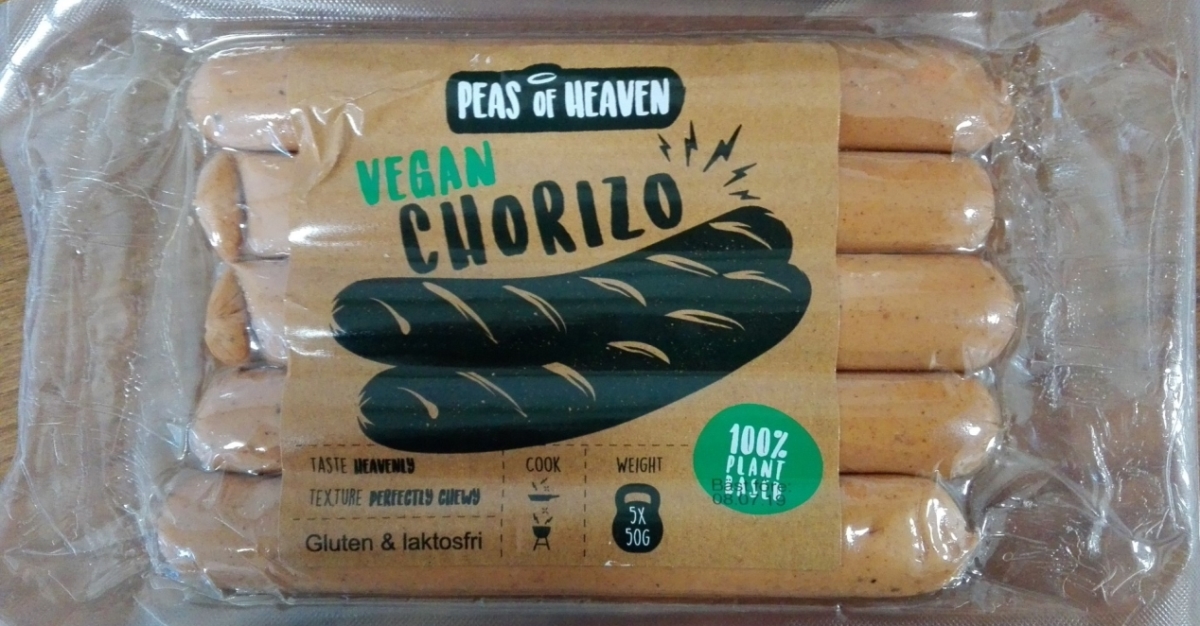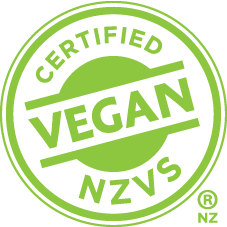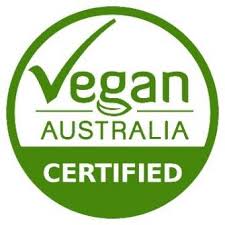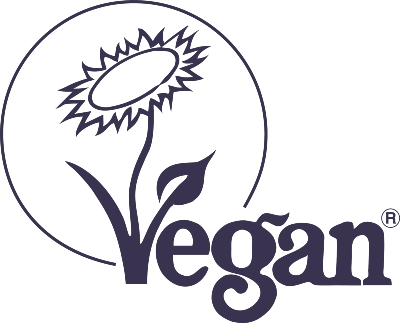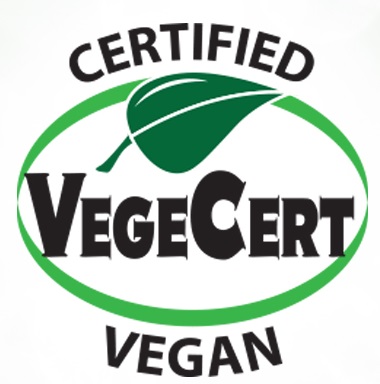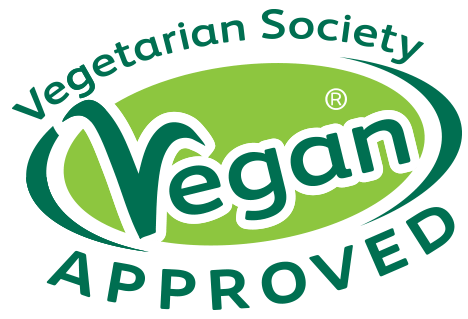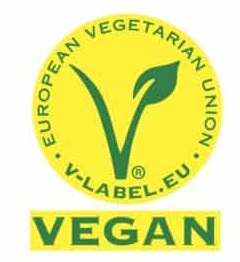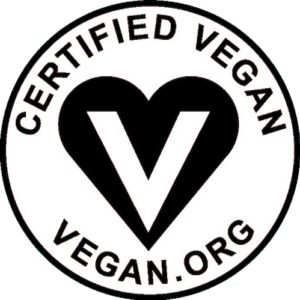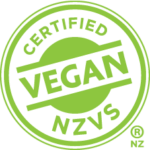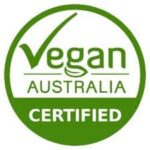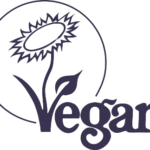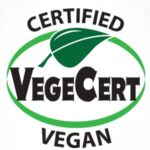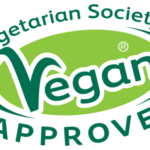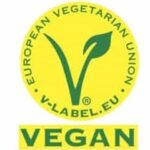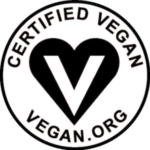As a vegan, you will undoubtedly come across at least a few vegan certification labels when you buy your daily groceries. A vegan certification label makes it easier for you to find your vegan food items, vegan hiking boots, even a vegan funeral, but what does the label really mean? There are many different vegan certification labels on the market, all competing for the same business. I have done the research to help you identify each vegan label and its specific requirements.
Why are vegan certification labels useful?
Vegan labels on product, make it easier for potential customers to find vegan products. Manufacturers of vegan products use these labels to attract vegan customers and to reassure them the products is really vegan. As a vegan, you no longer need to read the list of ingredients and look for obscure things like 'flavoring' or 'natural ingredients'.
Is a label the same as a certificate?
If a product is labeled as 'vegan' on the packaging, you should be able to rely on the fact that it actually is vegan. In practice, this is not always the case. The reasons for this vary. It could be that a non-vegan manufacturer has discovered the potential vegan market and has started to produce vegan items. However, they might not fully understand what it means to produce vegan products. There might also be manufacturers that are less scrupulous and will name their product 'vegan' even though they know it is not. Or they cannot be 100% certain.
This is where the certification bodies come in. These are essentially independent 3rd parties who issue certificates (or labels or trademarks, whatever they call it) for manufacturers to apply to their products. This gives the customer some assurance that an independent party has verified that the product is indeed vegan. This way it's not just the manufacturer declaring the product vegan. A vegan certification label, therefore, creates an extra line of trust.
Definition of Veganism
A universally accepted definition of veganism is the one drafted by the Vegan Society:
"Veganism is a philosophy and way of living which seeks to exclude—as far as is possible and practicable—all forms of exploitation of, and cruelty to, animals for food, clothing or any other purpose; and by extension, promotes the development and use of animal-free alternatives for the benefit of animals, humans and the environment. In dietary terms, it denotes the practice of dispensing with all products derived wholly or partly from animals."
How to compare different vegan labels
Currently, there are numerous different vegan certification labels. I have chosen to review the 7 most well-known and used labels. However, there are many more in countries all over the globe. To compare the different vegan labels I have looked at several different aspects, as well as the certification process itself.
Applicable Region
This determines where the label can be applied on products that are certified. Some certification bodies limit this to their own country, while others allow application of the label worldwide.
Verification of documentation
In order for the certification body to decide whether a product can be classified as vegan, they need verification of documentation. This means the manufacturer has to submit information regarding ingredients they use for the fabrication/assembly of the product and also regarding the production process.
On-site inspection
If the certificate/label/trademark is issued based on verification of information alone, the certification body has to rely on the information provided by the manufacturer. To increase the level of certainty, some certification bodies also use an on-site inspection to verify if ingredients and processes are indeed vegan.
Certification of products and/or companies
All the certification bodies I reviewed, issue certificates for single products. This means each new product will have to be investigated and certified. I have found that none of these certification bodies certify the entire company, not even if it is entirely vegan.
Certification of vegan products, even if the company is not vegan
The main goal of a vegan label is to assure the customer that the product is actually vegan. Whether the company itself is vegan or not is irrelevant for obtaining a vegan label. None of the reviewed certification bodies have an issue with non-vegan companies.
Certification of products containing GMOs
Some certification bodies allow GMOs (Genetically Modified Organisms) in products that are certified vegan, some do not allow it.
Cross-contamination allowed
Cross-contamination between non-vegan and vegan products can be a real issue in manufacturing processes, especially if the plant is producing both and non-vegan products. Whether a product can ever be 100% vegan is an academic discussion (even killing a fly while transporting the product to your home would render it non-vegan). Most certification bodies have rules and requirements of how to deal with this issue.
Testing on animals allowed
It's would seem like a no-brainer that actual testing of products on animals is out of the question to obtain a vegan label for a product. However, some certification bodies do make exceptions to this rule (!).
Click on the logos below and see what it means if a product is marked with this label.
Issuing Organization: New Zealand Vegetarian Society
Name of label/certificate/trademark: Vegan Certified NZVS
Applicable Region: New Zealand
Verification of documentation? Yes. Companies are required to sign a license agreement.
On-site inspection? Only if there are concerns about a company. Can also take place after certification.
Certification of products? Yes
Certification of companies? No
Certification of vegan products, even if the company is not vegan? Yes
Certification of products containing GMOs? GMO ingredients or products are not allowed (unless the GMO content is less than 1%).
Cross-contamination allowed? Not allowed. The manufacturer must have processes in place to prevent cross-contamination from occurring.
Testing on animals allowed? No, unless such testing was a proven and unavoidable legal requirement.
Information obtained from: Website and Philip McKibbin, the NZ Vegetarian Society's Trademark Manager.

Issuing Organization: Vegan Australia
Name of label/certificate/trademark: Vegan Australia Certified
Applicable Region: Australia
Verification of documentation? Yes. The process is based on trust.
On-site inspection? Only if deemed necessary.
Certification of products? Yes
Certification of companies? No
Certification of vegan products, even if the company is not vegan? Yes
Certification of products containing GMOs? Not specified.
Cross-contamination allowed? Some possibility for cross-contamination is allowed, but never on purpose. And manufacturers must take reasonable steps to minimize it.
Testing on animals allowed? The product and its ingredients must not be tested on animals by the manufacturer or a related entity.
Information obtained from: Website and Greg McFarlane from Vegan Australia.

Issuing Organization: Vegan Society (UK)
Name of label/certificate/trademark: Vegan Trademark
Applicable Region: Global
Verification of documentation? Yes, product ingredients, as submitted by the manufacturer, are checked.
On-site inspection? Only for products at high risk of cross-contamination.
Certification of products? Yes
Certification of companies? No
Certification of vegan products, even if the company is not vegan? Yes
Certification of products containing GMOs? No animal GMOs are allowed. Products that contain or may contain any GMOs must be labeled as such.
Cross-contamination allowed? Not allowed.
Testing on animals allowed? Not allowed.
Information obtained from: Website (I did not receive a response on my email requesting information).

Issuing Organization: Vegecert (CA)
Name of label/certificate/trademark: Vegecert Certified Vegan
Applicable Region: Global
Verification of documentation? Yes. A desk audit is performed on submitted ingredients and manufacturing processes.
On-site inspection? All companies are inspected. Virtual inspections have become more prevalent.
Certification of products? Yes
Certification of companies? No
Certification of vegan products, even if the company is not vegan? Yes
Certification of products containing GMOs? GMOs are not excluded from certification.
Cross-contamination allowed? Not allowed. Cleaning processes for equipment are required to prevent cross-contamination.
Testing on animals allowed? Not allowed.
Information obtained from: Website and Richard Rabkin, Managing Director at VegeCert.

Issuing Organization: Vegetarian Society (UK)
Name of label/certificate/trademark: Vegetarian Society Vegan Approved
Applicable Region: the United Kingdom & further
Verification of documentation? Yes, it involves independent ingredient and production method checking.
On-site inspection? No
Certification of products? Yes
Certification of companies? No
Certification of vegan products, even if the company is not vegan? Yes
Certification of products containing GMOs? Not allowed.
Cross-contamination allowed? Cross-contamination must not occur. Thorough cleaning must be carried out.
Testing on animals allowed? No, unless such testing was a proven and unavoidable legal requirement.
Information obtained from: Website and application form sent to me by email.

Issuing Organization: V-label
Name of label/certificate/trademark: V-label Vegan
Applicable Region: Global
Verification of documentation? Yes, a complete review of the composition of the product and use of all processing aids.
On-site inspection? Yes, audits are performed by 3rd party auditors. Requirements for audits vary per country.
Certification of products? Yes
Certification of companies? No
Certification of vegan products, even if the company is not vegan? Yes
Certification of products containing GMOs? Products that require GMO labeling according to applicable laws cannot be licensed with the V-Label.
Cross-contamination allowed? All processes ought to be designed in a way that there is preferably no unintended cross-contamination. The unintended presence of non-vegan substances should be less than 0.1 % (1g/kg) in the final product.
Testing on animals allowed? Not allowed, unless the product is intended for that specific species. For instance, vegan dog food can be tested by domestic dogs, if approved by its caretaker.
Information obtained from: Website and Daniël Gerritsen, Researcher V-Label Certification at Vegetariërsbond.

Issuing Organization: Vegan Awareness Foundation
Name of label/certificate/trademark: Certified Vegan
Applicable Region: USA, Canada, Australia, New Zealand
Verification of documentation? Yes. Documentation on each ingredient must be provided to show it is both not animal-derived and not tested on animals.
On-site inspection? No
Certification of products? Yes
Certification of companies? No
Certification of vegan products, even if the company is not vegan? Yes
Certification of products containing GMOs? No animal GMOs are allowed.
Cross-contamination allowed? Companies must take acceptable steps to thoroughly clean and sanitize all surfaces, vessels, utensils, and machinery used between vegan and non-vegan production cycles to minimize cross-contamination.
Testing on animals allowed? Not allowed.
Information obtained from: Website
Conclusion
In my view, there are no good or bad labels. Just keep in mind that different vegan certification labels have different standards and requirements. You have to determine for yourself what you find most important and choose accordingly.
